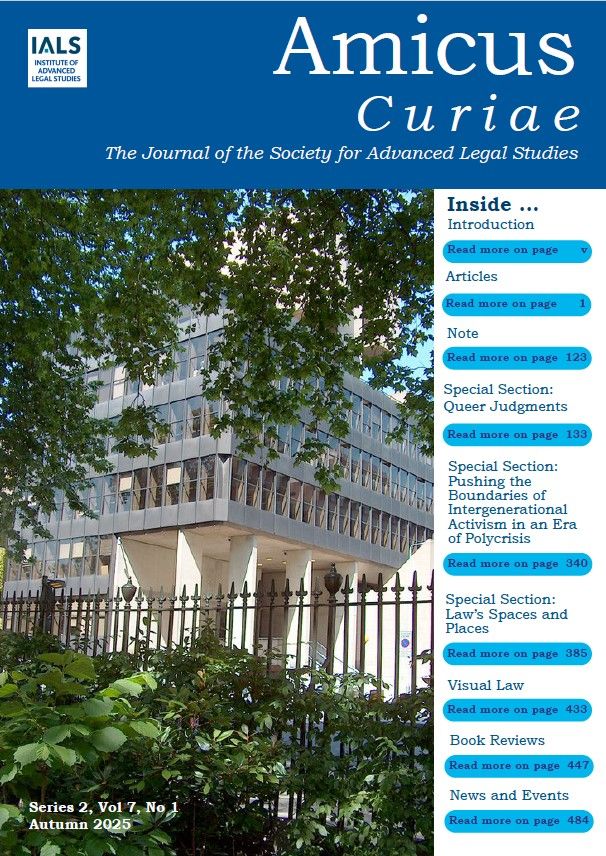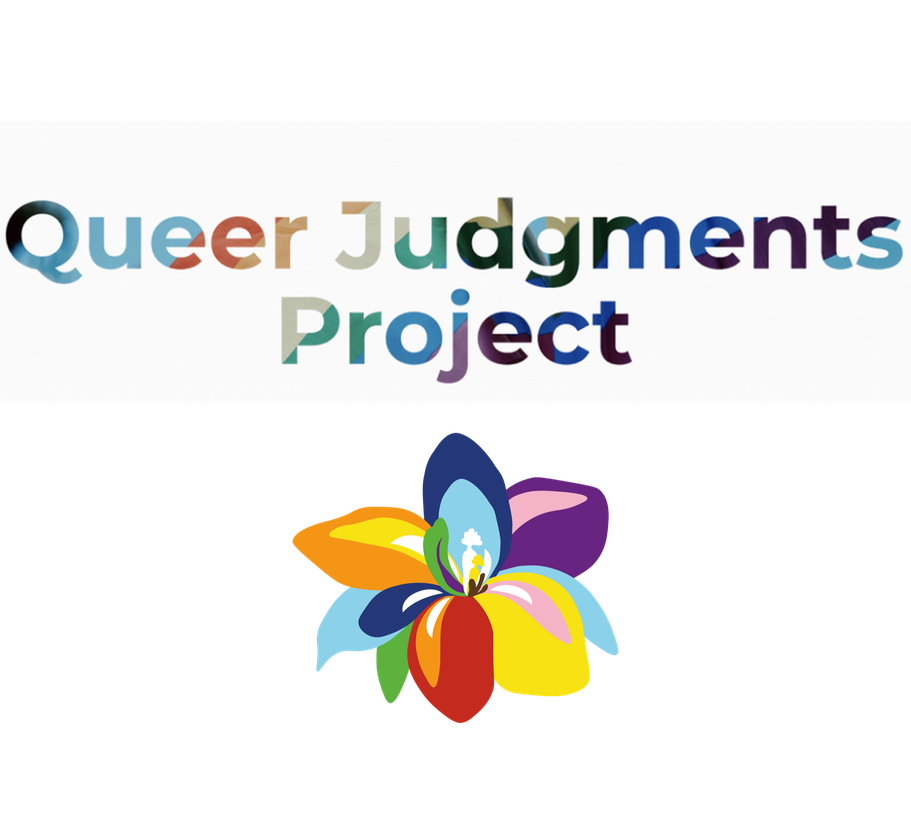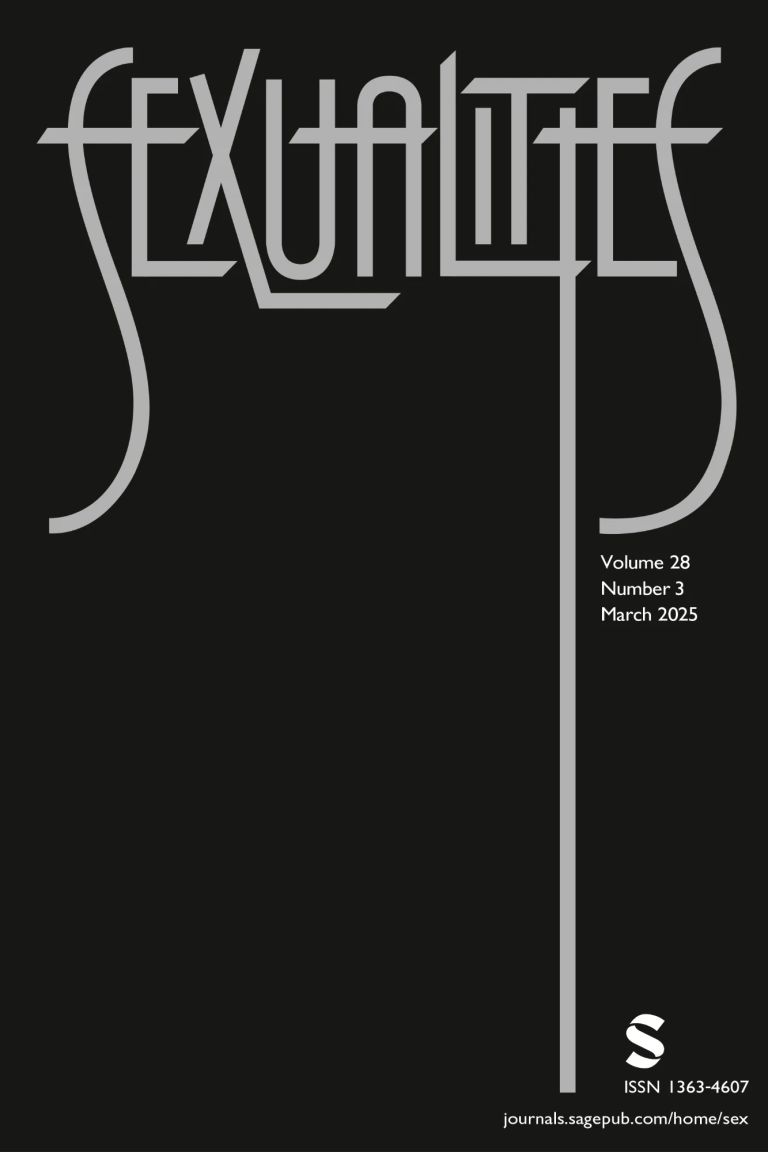
Academic and creative outputs
In order to capture all potential contributions to the Queer Judgments Project, the editors collated the preferences of about 70 people interested in contributing to the project. Based on the responses, we decided that our first output will be an edited collection.
We also envisage a special journal issue with various contributions exploring many of the judgments we wish to analyze.
Our project, however, will not end with the production of an edited collection and special journal issue. In fact, many of our contributors are planning creative outputs. Through our conversations, we have amassed a wonderful group of people who have varying professional skills, scholarly interests, activist ambitions, and community aspirations. We want to hold space for all of them, and all their pursuits. We will also be encouraging other outputs as we grow: podcasts, theatre performances, talks, etc.
Professor Nuno Ferreira introduces The Queer Judgments Project
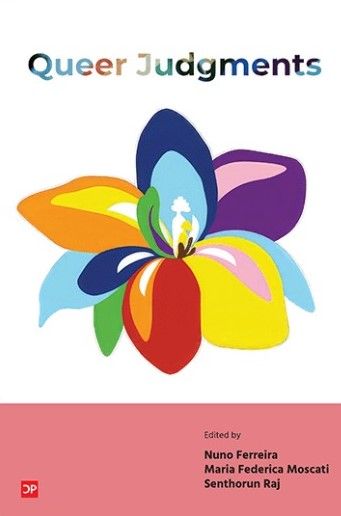
Edited collection out with Counterpress
The QJP edited collection has been published by Counterpress in January 2025. This edited collection is the first output of the project and the pages of this book re-imagine, re-write and re-invent judgments, from queer and other complementing perspectives. With an international reach and multi-disciplinary scope, this edited collection invites you to a queer dance through 26 judgments and commentaries.
We invite you to read us queerly and move these conversations
with us!
The book is available on an open access (pay-as-you-go) basis here.
For a review, see Aishwarya Birla in the Australian Feminist Law Journal, available here:
‘this multi-disciplinary project is an important interjection to how lawyers and judges engage with the law in offering queer imaginings. (…) deeply open and introspective methodology (….) innovative and provocative academic contribution (…) an extremely powerful disruption of the status quo of the law and its interpretation. (…) an incredibly thought provoking and innovative academic contribution that opens doors to further research and for queer justice.’]
Queering migration and asylum judgments
To celebrate the LGBT+ History Month 2025, we have published a piece in the Sussex Centre for Migration Research Blog. Click below to read the whole piece.
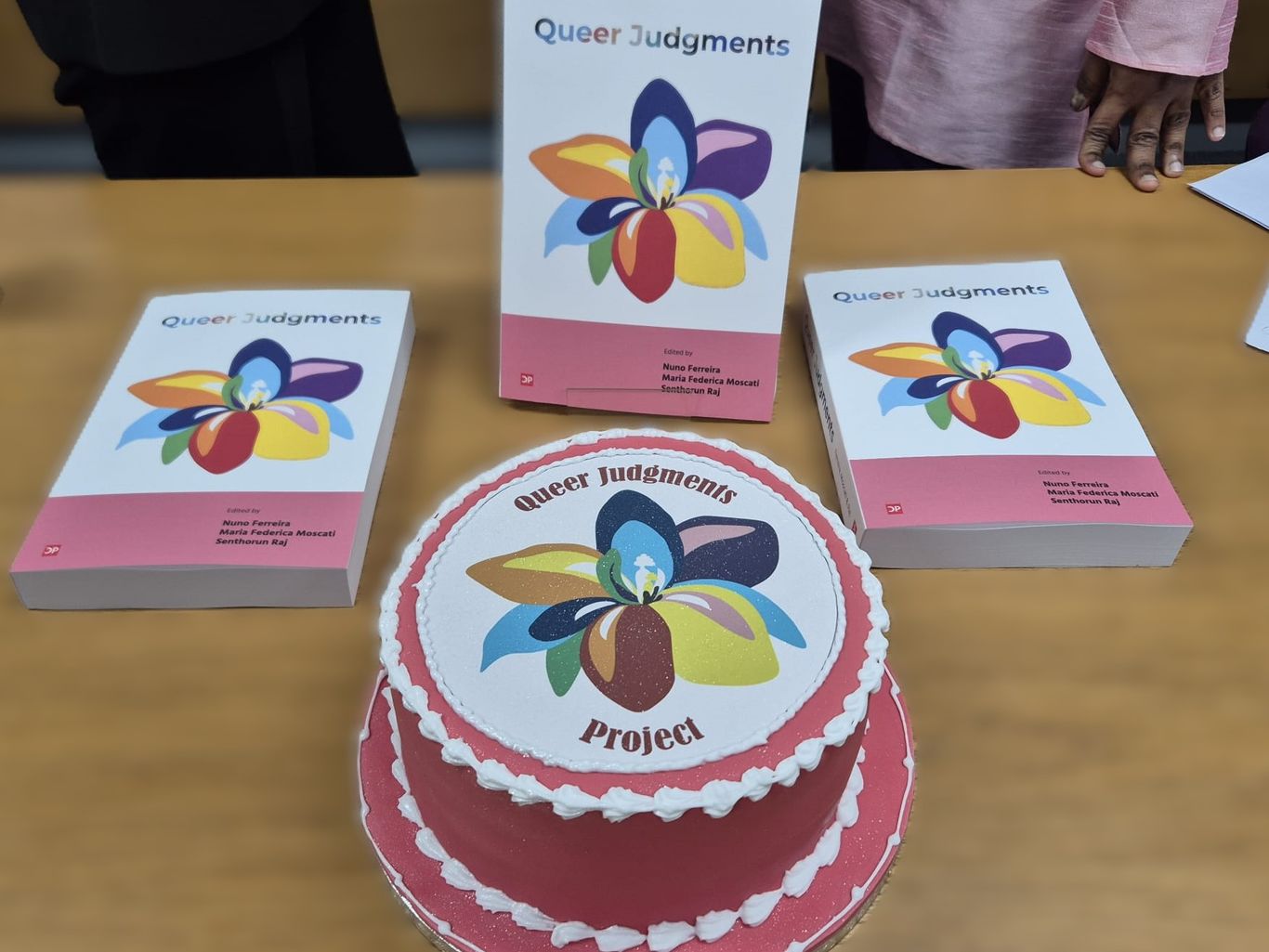
'Emotional accountabilities: Affective autoethnography and writing queer judgments'
Journal article by Sen Raj, out in Sexualities, 2025
Queer encounters with legal accountability generate a range of tensions and paradoxes. In law, accountability materialises as a core feature of legal systems that seek to hold individuals and institutions responsible for their behaviour according to a set of predetermined state criteria. Queer scholars have approached legal logics of responsibility with scepticism as these logics are indexed by heteronormative state criteria. Queer legal work holds space for queer critique without necessarily abandoning normative criteria. It navigates queer scepticism through critiques, refusals, and calls for legal accountability across individual, interpersonal, and institutional contexts. This is emotional work. In this paper, I demonstrate narratively how emotions pervade how we (as queer legal scholars) imagine, conceptualise, and approach socio-legal questions of violence, discrimination, inequality, and exclusion facing LGBTQ + people and how we (as queer people, lawyers, and activists) work with or against legal institutions to seek accountability and realise our rights. This paper adopts an autoethnographic approach to invite scholars, lawyers, activists, and judges to explore the law’s capacity to both remedy and effect harm against LGBTQ + people by taking seriously how emotions mutually co-construct the normative dimensions of LGBTQ + rights alongside the critical forms of accountability rights claims generate. I do this through a close reading of R v Green, an Australian criminal law case that deals with “defences” for homophobic violence. Emotion offers an analytic lens to expose personal (queer person), scholarly (queer academic/lawyer), and political (queer activist) entanglements with various accountabilities generated by the case. I use affective autoethnography to draw together the normative and analytic dimensions of emotions across personal, scholarly, and political registrations of accountability by discussing the process of writing a “queer judgment” of R v Green. The queer judgment, as an exercise in accountability, is an affective object of law, method of critique, and space for ethico-political engagement. This creates space to pursue legal accountability in terms of care and imagination while also questioning or broadening the terms by which such accountability is delivered in law.
Queer Rights, Queer Futures: An Affective Experiment in Legal Form
Journal article by Sen Raj, out in Southwestern Law Review, 2025
This paper is an affective experiment in queering legal form and how we, as queer legal scholars, might re-imagine and recreate legal rights when casting judgment. It threads creative memoir with pop culture and critical analysis to reimagine the nature of a traditional legal essay. This piece flows in three parts. Drawing on an archive of experiences teaching, researching, thinking, and writing queer legal scholarship, I start the paper with a fictionalized recreation-what Saidiya Hartman calls "critical fabulation" to distill the emotions that materialize when navigating socio-legal issues that shape jurisprudential, pedagogic, and scholarly ideas about marriage equality and cultural norms about queer love. The next section combines critical theoretical engagements with law and form to reflect on the pedagogic, scholarly, and judicial possibilities of queer judgment making as a "reparative praxis." I argue that this queer engagement with legal form holds space for romance, risk, intimacy, love, and hope as we teach, research, and adjudicate rights for lesbian, gay, bisexual, transgender, queer, and other minoritized (LGBTQ+) people. I conclude that queer judgment is a romantic expression of queer legal form, one that offers us critical, normative, and creative space to represent how we conceptualize, critique, teach, and practice law.

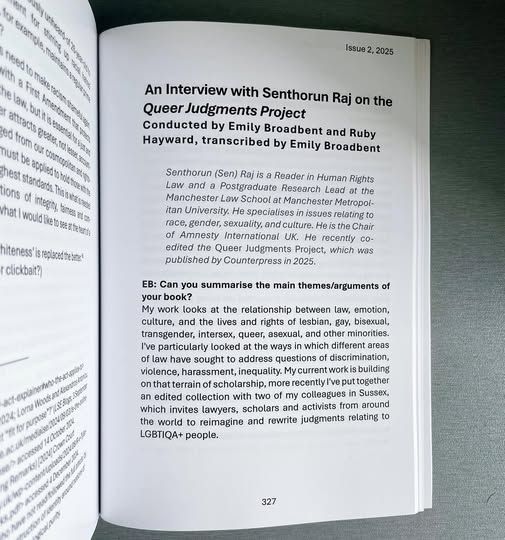
An Interview with Senthorun Raj on the Queer Judgments Project
Conducted by Emily Broadbent and Ruby Hayward, transcribed by Emily Broadbent
Published in Manchester Law Journal, Issue 2, 2025, 328-346

A glimpse into more creative outputs to come...
The Queer Judgments Project is about queer friendship and creativity. In Autumn 2025, one of our contributors, Dr Joy Twemlow, crocheted this queer flower bouquet which she gifted to one of the editors, Dr Sen Raj. Inspired by our flower motto, this bouquet represents the beauty, innovation, kinship, and flourishing of queer communities.
Spotlight on Children's Rights
The QJP edited collection has several contributions that relate directly or indirectly to children, and we highlight those in this spotlight for the Annual Report 2024/25 of the Centre for Innovation and Research in Childhood and Youth (CIRCY), University of Sussex.
We discuss the contributions from:
- Sanna Elfving, Katie Jukes, Miriam Schwarz and Surabhi Shukla (Chapter 16) on the 2008 European Court of Human Rights' judgment in EB v France, regarding adoption by a lesbian woman;
- Claire O’Connell and James Rooney (Chapter 17) on the Irish Supreme Court's decision in McD v L and M, regarding a guardianship dispute between a lesbian couple and a gay man who had acted as sperm donor;
- Daryl Yang (Chapter 19) on the 2018 Singapore High Court's decision in UKM v Attorney-General, regarding an adoption order request, in connection to a child gestated through surrogacy, with the aim of obtaining Singaporean citizenship for the child;
- Lynsey Mitchell (Chapter 20) on the 2017 judgment of the UK Supreme Court in R (on the application of A and B) v Secretary of State for Health, regarding the right to abortion;
- Liam Davis (Chapter 21) on the 2020 UK Supreme Court's judgment in McConnell and YY v The Registrar General for England and Wales, regarding the request from a trans man who had given birth to be named as father or parent (but not as mother) in the child’s birth certificate;
- Joanne Stagg (Chapter 22) on the 2020 decision of an Australian Family Court in Re Imogen (No. 6), regarding medical age of consent, parental authority, and witness expertise, in a case relating to a transgender girl.
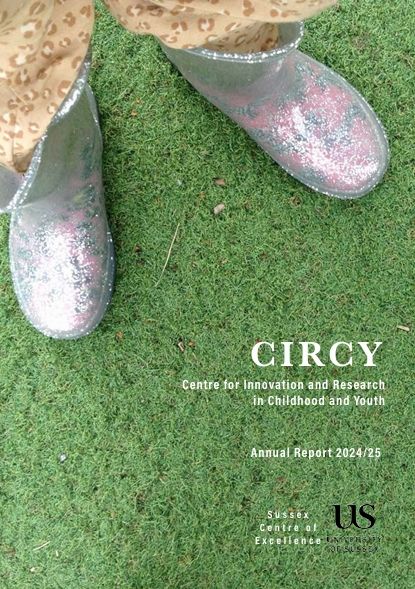
Talking about Methods podcast series, Centre for Socio-Legal Studies in Oxford, 29 October 2025
In this episode of Talking about Methods, Professor Linda Mulcahy talks to Nuno Ferreira and Senthorun Raj about the Queer Judgments Project, which they coordinate with Maria Federica (Marica) Moscati. They discuss the project’s origins, how it enables them to work around the limits of the law in a productive way, and how it weaves together political, personal, and intellectual concerns. At its heart, the project is about building community—connecting with people who care deeply about queerness and justice, both within and beyond academia—and stretching our engagement with law beyond the written word.

A Special Section of Amicus Curiae on 'Queer Judgments', edited by Alex Powell & Katie Jukes, is out!
The Special Section includes:
- Foreword by Graeme Reid (see video on the left)
- Editorial: Queer Judgments' by Alex Powell and Katie Jukes (133-147)
- 'Queer Source of Law: Expectation of Compliance with the Yogyakarta Principles in International Human Rights Mechanisms' by Rafael Carrano Lelis (148-182)
- 'Gender Identity, Asylum and the ECHR: A Critical Doctrinal Analysis of Extraterritorial Gender Rights' by Mariza Avgeri (183-205)
- 'Tackling Anti-LGBTIQA+ Councillor Misconduct' by Sean Mulcahy (206-228)
- 'Love without Veil or Garland: A Critical Reading of the Judgment on Same-Sex Civil Unions in Brazil' by Eder van Pelt (229-254)
- 'Suspended Agency: Cripping Judicial Ambivalence to Intellectual Disability and Sexuality' by Po-Han Lee (255-287)
- 'Rewriting Supriyo: Unpacking India’s Marriage Equality Judgment' by Jwalika Balaji and Mandar Prakhar (288-314)
- 'Muted Queerscapes: Intersectional Resistance Queering of Workplace Law Using Poetry' by Yerram Raju Behara (315-321)
- 'Equali-T' by SJ Cooper-Knock (322-339), including song in video format (see video on the left)
All found in Amicus Curiae, Vol. 7 No. 1 (2025): Series 2.
